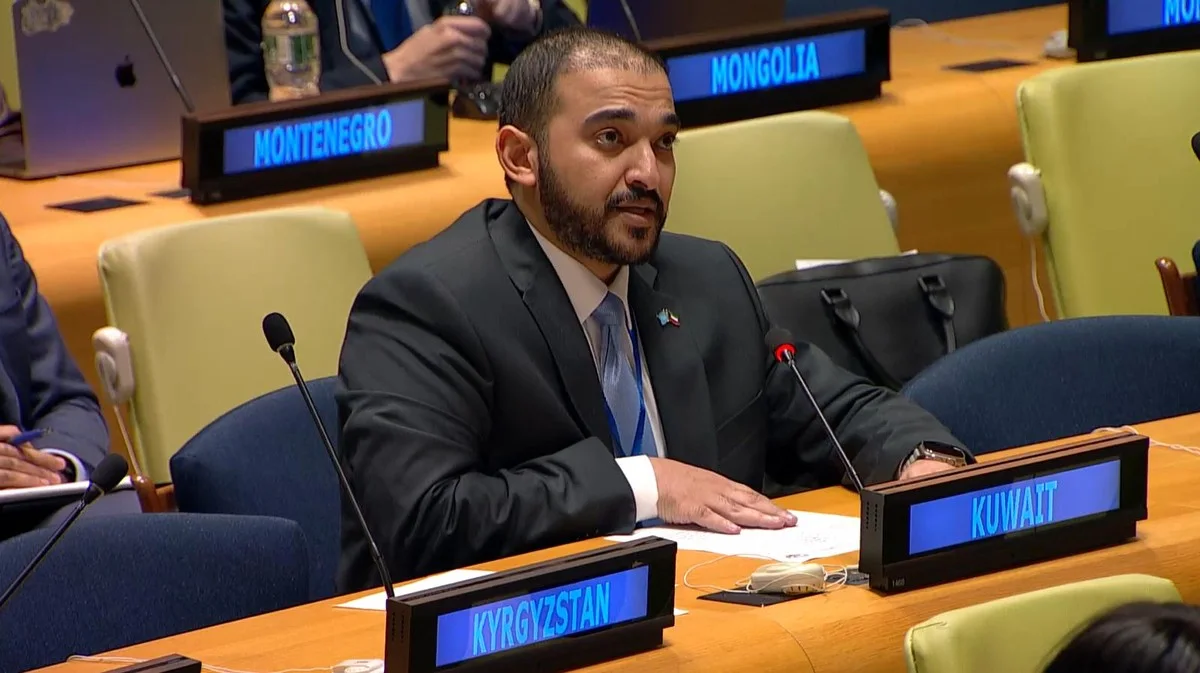18/10/2025
18/10/2025

The humanitarian situation in the occupied Palestinian territory, particularly in the Gaza Strip, has reached an unprecedented level of deterioration as a result of the occupation’s aggression over the past two years, he regretted. He noted that the Israeli occupation’s war has led to widespread destruction of infrastructure, killing of thousands of civilians, rising rates of poverty and unemployment, and the complete collapse of health, education, and economic services in the Gaza Strip. Moreover, this suffering has extended to the West Bank, including the occupied East Jerusalem, where Palestinians face discriminatory policies, home demolitions, land confiscation, and restrictions on movement, in addition to escalating settler attacks and illegal settlement expansion, he lamented.
The Third Secretary expressed the Gulf Group’s deep concern about the impact of the occupying power’s practices on the education sector, as the systematic destruction in Gaza has deprived large numbers of children of their right to education. He voiced the Gulf Group’s condemnation of the occupation’s continued depletion of natural resources in the occupied Syrian Arab Golan Height through the confiscation of land and water and its exploitation for illegal settlement and economic projects, including the wind turbine project, which has caused significant environmental and health damage to Syrian communities. Al-Abhoul stressed the need for full commitment to the ceasefire agreement and the facilitation of the entry of urgent humanitarian aid into the Gaza Strip to end the famine and achieve stability.
He called on the international community to assume its legal and moral responsibilities to end the occupation, lift the siege on the Gaza Strip, halt all occupation violations, and hold those responsible accountable in accordance with international humanitarian law and international human rights law. Also, the Gulf Group at the UN voiced support to initiatives aiming at investing in technology to make information pertinent to multilateral treaties available to the public so easily, transparently and free of charge. Addressing the Sixth UN Committee on behalf of the group late Thursday, Kuwaiti Diplomatic Attaché Jana Al-Dhfairi said that amid rapid changes in legal and technological realms, it is indispensable to double efforts to transfer knowledge and share expertise, leading to balanced international relations based on mutual respect and understanding. She cited the Kuwait Declaration, which was adopted during the 45th session of the GCC, as underlining the significance of strategic investment in information technology, mainly artificial intelligence, big data analytics, cloud computing and cybersecurity.
The declaration also stressed the necessity of developing digital infrastructure, expanding emerging technologies and grooming young people for digital transformation. The Kuwaiti diplomat also explained the importance of technology and digital infrastructure in GCC development goals, saying that mutual interest has positively reflected on GCC advance in communication development and information technology index. She spoke highly of international efforts purposed to invest technology in treaty-making practices as a strategic tool of developing governance systems, respecting human rights and establishing the rule of law in international relations. (KUNA)


